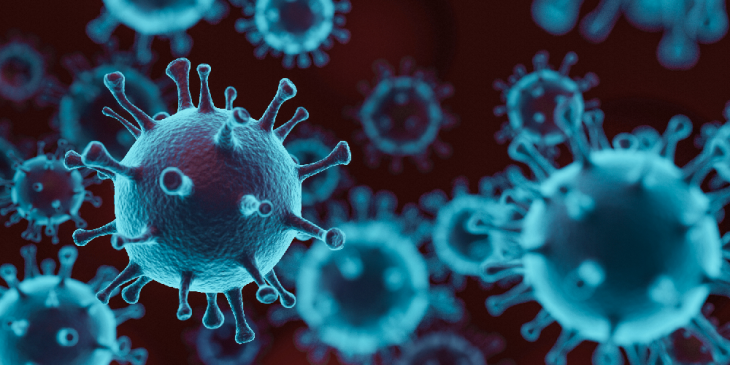What an awful year we have been through. The loss of life and economic suffering caused by the COVID-19 pandemic have been enormous and heartbreaking. As a consequence of COVID-19, more than 500,000 Americans have died, including people close to many of us. Children have lost substantial time in school with unknown effects on future learning. There can be no doubt that SARS-CoV-2, the virus that causes COVID-19, is dangerous. The distribution of safe and effective COVID-19 vaccines offers real hope that we can bring this pandemic to a close. But we still have work to do.

Dr. John V. Williams
We are now experiencing a fourth wave of COVID-19 in many parts of the parts of the country. This new wave may be in part due to widespread circulation of variants, like the SARS-CoV-2 B.1.1.7 (or U.K.) variant, which appears to be more contagious than previously circulating strains. However, we have the means to end the pandemic by getting vaccinated and continuing to follow COVID-19 risk-mitigation precautions, the most important of which is masking.
The two FDA-approved COVID-19 vaccines used in the U.S. now, manufactured by Moderna and Pfizer/BioNTech, protect recipients against severe disease with comparable efficacy and may diminish transmission to susceptible contacts. Protection of susceptible contacts is especially important to shield immunocompromised and elderly persons who are at the highest risk for severe COVID-19 and may not be able to mount protective antibody responses after vaccination. In other words, these vaccines protect you and those close to you.

Dr. Terence S. Dermody
The Moderna and Pfizer vaccines, based on mRNA that codes for the SARS-CoV-2 spike protein, have been thoroughly tested in tens of thousands of people and administered to tens of millions. They are safe and effective. Both of us participated in the Moderna COVID-19 vaccine trial and attest to the completeness of the safety evaluation. Yes, some vaccine recipients experience low-grade fevers, chills and fatigue (as one of us certainly did), but those symptoms reflect an active immune system, which is a good thing. These vaccines were not rushed to market. On the contrary, the technology used to manufacture each vaccine was in development for decades prior to the COVID-19 pandemic.
Distribution of a third FDA-approved COVID-19 vaccine, manufactured by Johnson & Johnson, has been paused to evaluate a possible linkage to very rare (about one in a million doses of vaccine administered) instances of blood clotting. This vaccine uses a technology that differs from the Moderna and Pfizer vaccines and is similar to the AstraZeneca COVID-19 vaccine that has thus far not been licensed in the U.S. Both the J&J and AstraZeneca vaccines use adenovirus vectors to deliver genes coding for the SARS-CoV-2 spike protein. After a thorough safety review, the European Medicines Agency (equivalent to the U.S. Food and Drug Administration) recommended that the benefits of the AstraZeneca vaccine outweigh the risks. The pause on the J&J vaccine provides confidence that our surveillance system for very rare vaccine adverse events is working.
There are worries that the COVID-19 vaccines might not protect against variants that are circulating in many parts of the world, including the U.S. However, this appears not to be the case, at least for now. And some good news is coming from scientists who study variants. It appears that the same types of variants are independently arising in many different countries, suggesting that the virus has limited options to change over time.
Although the vaccines clearly protect the vast majority of recipients, they are not perfect, and we can’t let our guard down. We still need to wear masks in public, avoid crowds (especially when indoors), keep our hands clean and stay home if we are sick. Coupled with vaccines, these simple measures will decrease infection rates, limit selection of new variants, reduce hospitalizations and deaths and allow us to resume our pre-pandemic lives. Little could be more important.
Dr. Terence S. Dermody is the Vira I. Heinz Distinguished Professor and Chair of the Department of Pediatrics at the University of Pittsburgh School of Medicine and Physician-in-Chief and Scientific Director of UPMC Children’s Hospital of Pittsburgh.
Dr. John V. Williams is the Henry L. Hillman Professor and Director of the Division of Infectious Diseases, Department of Pediatrics and Director of the COVID-19 Medical Response Office at the University of Pittsburgh School of Medicine and UPMC Children’s Hospital of Pittsburgh.









